
China
13:48, 25-Dec-2018
40 Elites in 40 Years: The crosstalk performer from Cameroon
Updated
12:50, 28-Dec-2018
CGTN
04:18
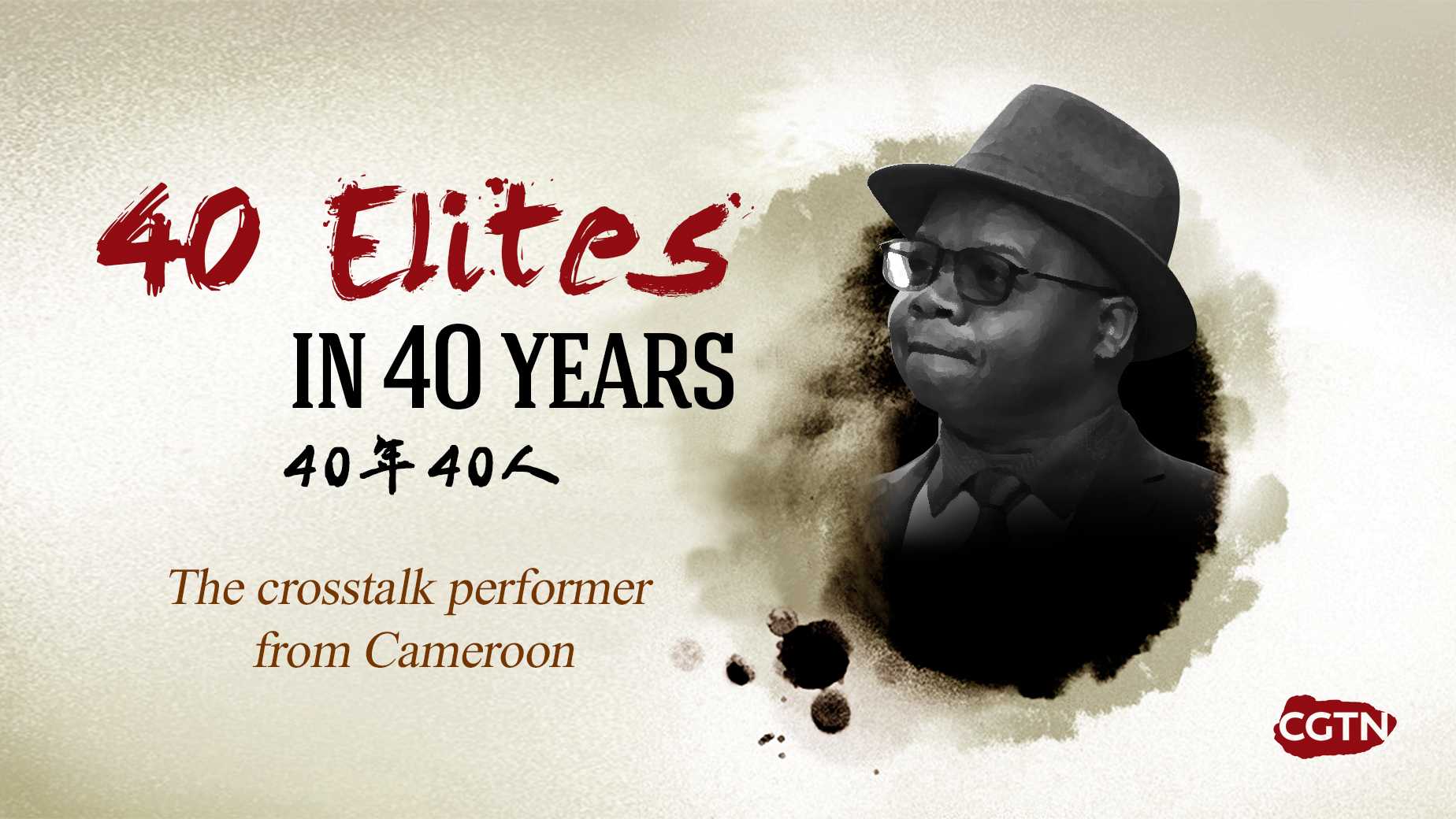
Francis Tchiegué comes from Cameroon. Fascinated by Chinese culture, he is now a frequent performer on various TV shows in China.
With a doctorate in mathematics, he came to Beihang University for another doctorate in computer science in 2003.
Tchiegué has always felt a connection with Chinese culture. "My father loved Chinese kung fu. He used to take us to watch Chinese films. Most of them starred Bruce Lee or Jackie Chan."
Tchiegué learned some moves from his father, who was already a local kung fu master before he started school.
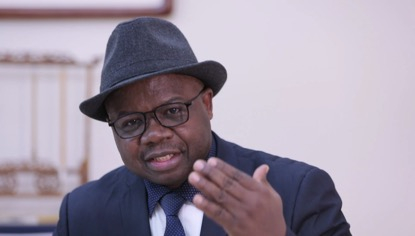
Tchiegué began to learn Chinese after he came to China. "I've learned several languages such as German, Russian and Italian, which I spoke well after learning for a couple of months," he said.
"After a year in China, however, I still had trouble speaking Chinese. The Mandarin tones were too complicated!" When he was about to give up, he saw Dashan (the stage name of Canadian Mark Henry Rowswell) performing “xiangsheng”, the Chinese comedic art form also called crosstalk, on TV. It turned out that a foreigner can speak Chinese like a native speaker! Inspired, Tchiegué also became interested in the Chinese crosstalk.
Thus he began to work hard on Chinese. Acquiring a certificate of Level 1-B on the Putonghua Proficiency Test (PSC), he also became an apprentice of Ding Guangquan, one of the renowned crosstalk artists in China. "Mastering the language, I feel a sense of achievement. I'm getting closer to the Chinese people."
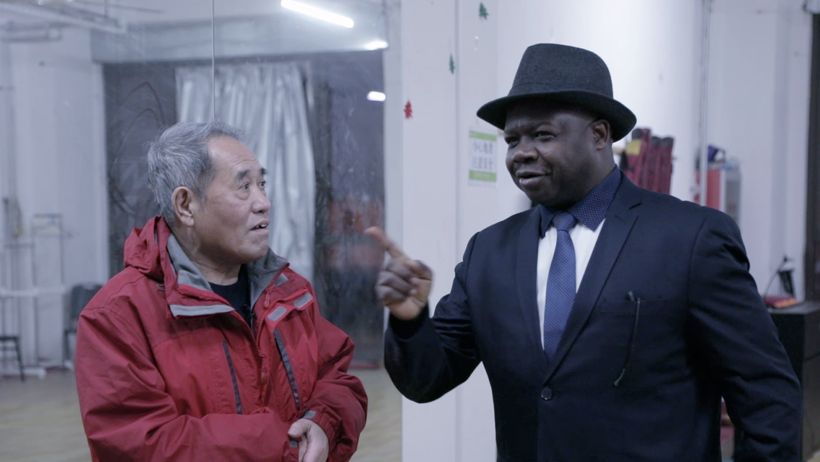
As a fan of Chinese quyi (traditional art forms), he even performed at the Chinese Opera Spring Festival Gala. He understands those art forms well, probably because he used to be a host for the classical music channel for Cameroon Radio Television (CRTV), presenting Western opera for audiences.
"Western opera is similar to the Chinese ones, as the young people find neither of them easy to understand. But they are profound arts indeed." He believes that it's important to pass on those art forms: "The pace of modern life goes so fast, that people feel a growing emotional repressiveness. We need something in-depth to bring us back to humanity."
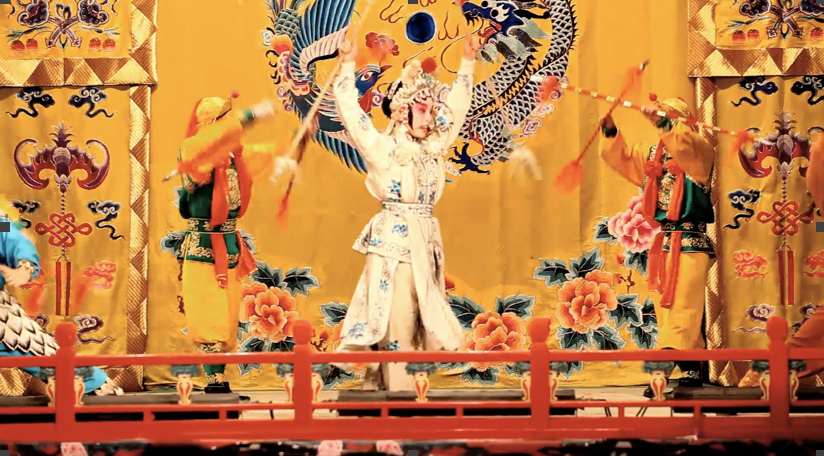
Living in China for more than a decade, Tchiegué has witnessed great changes in the country. "China seemed totally different since around 2008," he said.
"China had been developing so fast before 2008, which brought up problems in environment and traffic conditions in the meantime. But with the Summer Olympics coming close, the cities became so clean. It was like preparing your house for the guests."
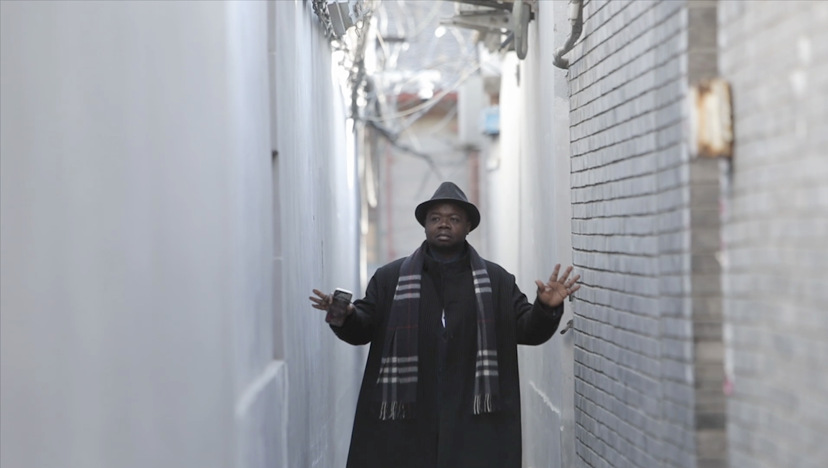
Tchiegué has been impressed by China's modernization and development in the last decade. "I see those tall buildings where people live and work happily in." Aside from science and technology, he hopes that foreigners could learn more about Chinese culture. "Those skyscrapers and flyovers don't speak for China. Its culture does," he said.
"Together with foreign visitors, I prefer to take them to the hutongs, or to the Chang'an Grand Theater for the Peking Opera or any local operas."
Tchiegué is committed to cultural communication in China. "I hope the people of the world could eventually have that tacit understanding. Harmony is most precious in diversity," he said. "After all, we are all dwellers in this global village."

SITEMAP
Copyright © 2018 CGTN. Beijing ICP prepared NO.16065310-3
Copyright © 2018 CGTN. Beijing ICP prepared NO.16065310-3